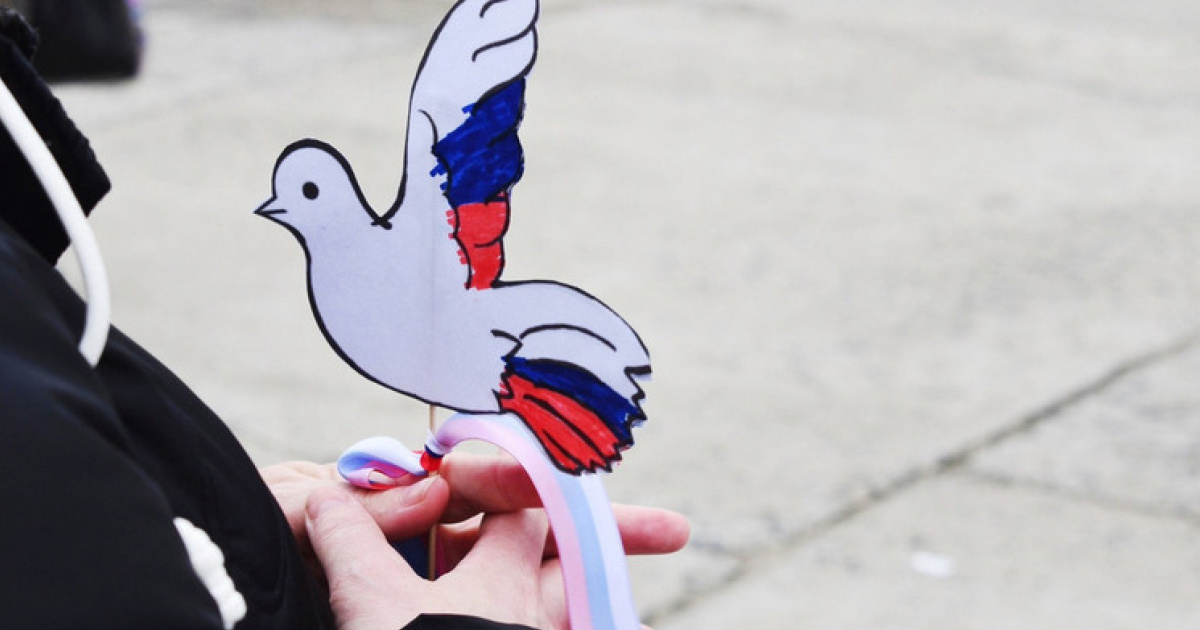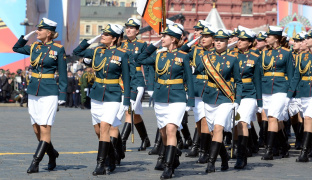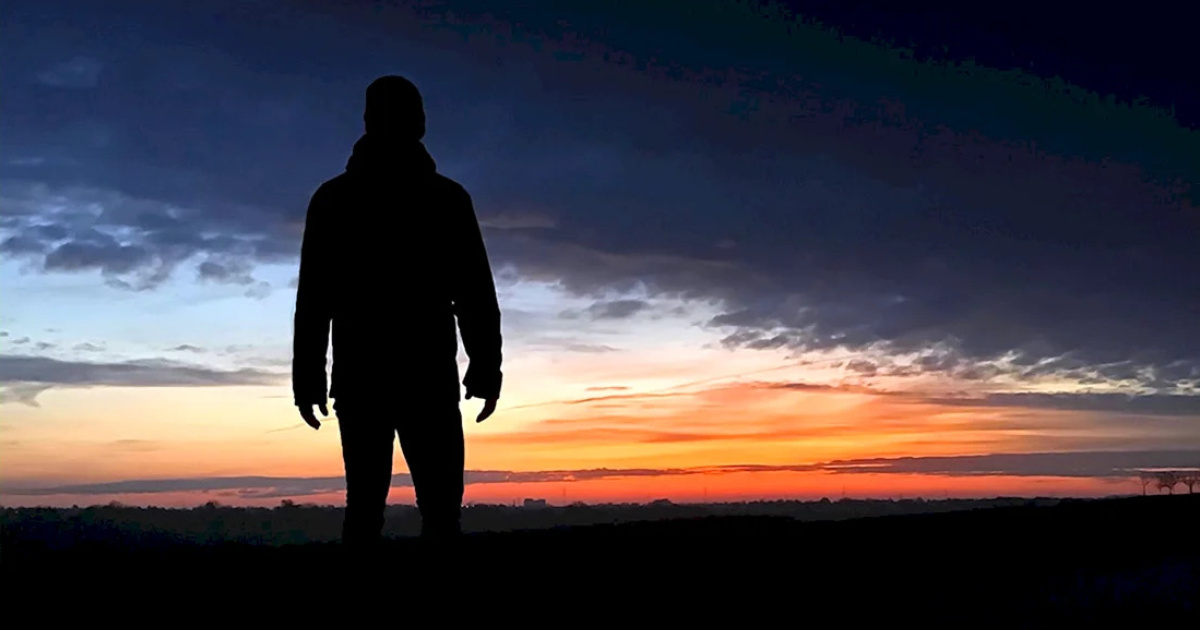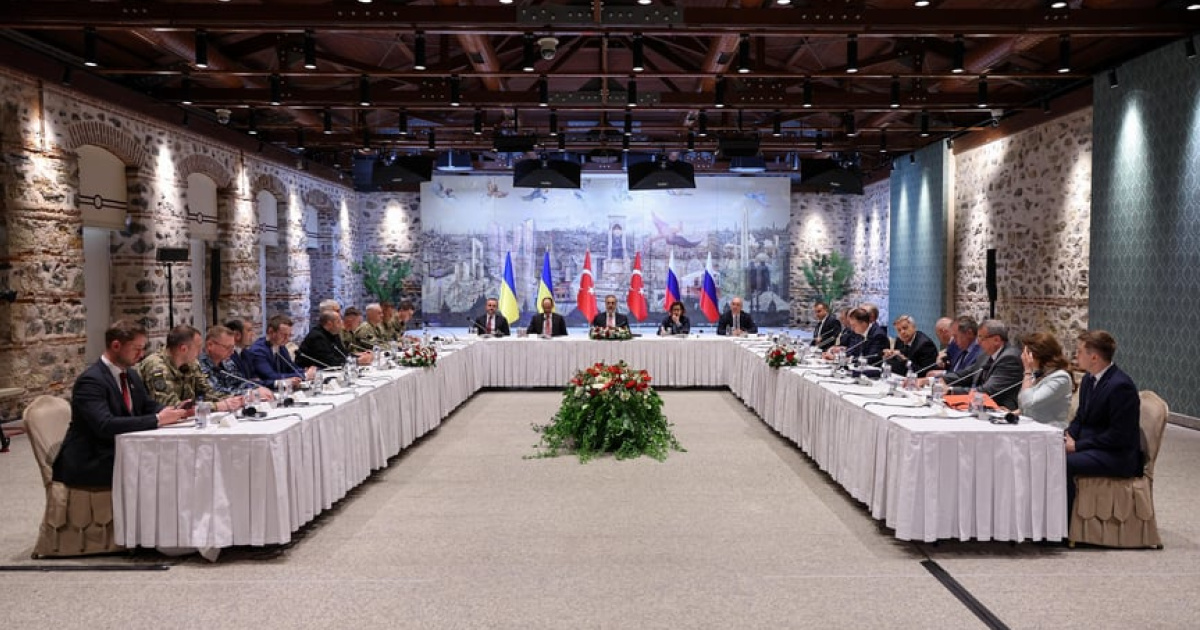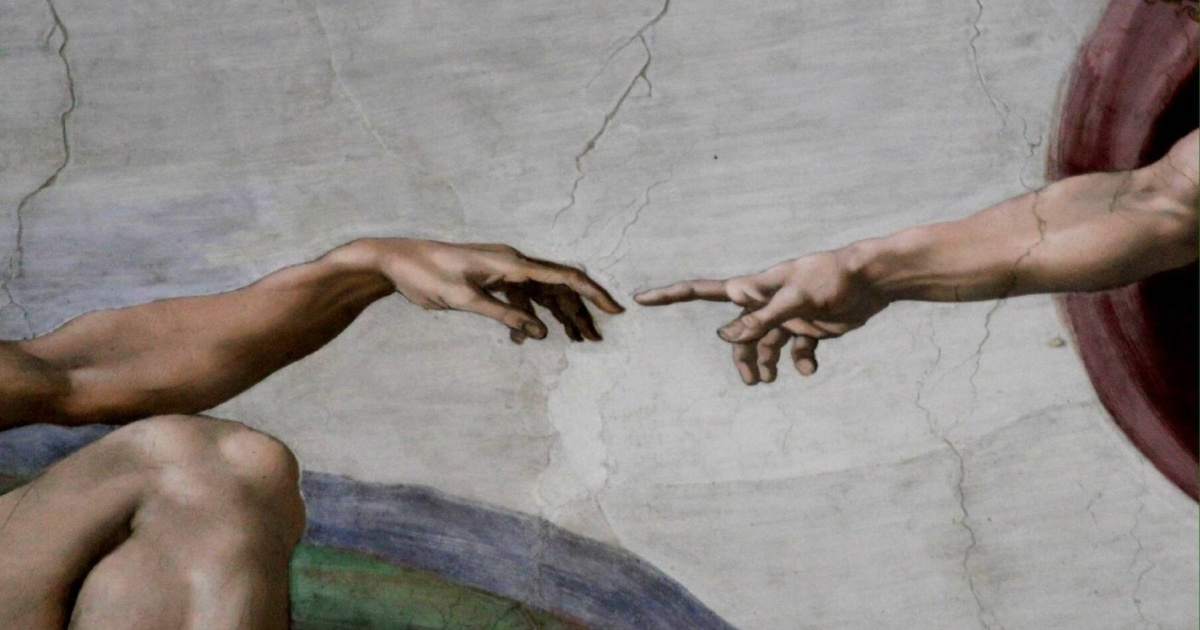"Rubizhne has ceased to exist", – this way, sobbing,the last few days I start my phone conversations with those friends who loved Rubizhne as much as I did. And with acquaintances of the military – if they are alive, if they pick up the phone. Finally, there is the opportunity to shout about it to the whole world: I left, got to the power supply, charged my mobile phone and thI have the connection…
This is one of the few journalistic materials I have written from the first person. And probably one of the most illogical. Because here I am the author, the source of information, the witness of the events and the participant in the events. The events are absolutely surreal – from the disappearance of the city leadership to the search for food in the looted bombed shops. Against the background of fierce battles for the city. Against the background of Ukrainian flags, which the occupiers have not yet reached.
CITY
Now it is a ruin. Surreal scenery with half starved people and abandoned animals… This is about the lucky ones. In addition to the above-mentioned creatures, whose task is to survive, there are still uncounted and unburied victims. There are severely wounded, who could not be reached by doctors. The wounded who are in agony waiting to die.



It was the center of the Rubizhne city territorial community until February 24, 2022. The population is about 60 thousand residents. That is, about a tenth of Mariupol.]
As for the industrial Donbas, which has a depressive reputation, Rubizhne was a city quite self-sufficient, with a developed infrastructure. Several powerful factories provided jobs for the population, and successful agricultural firms operated in the villages of the community.
The local road maintenance company had the latest "fancy" equipment (thank God, it is now used by our military). The inner-quarter roads have just been asphalted according to the "presidential" project. The budget was steadily filled by local enterprises. And there were many plans…
I
As a person with IDP status, I have lived in Rubizhne for the last year and a half. I enjoyed my favorite journalistic work, the opportunity to get to the editorial office in minutes, comfortable asphalt underfoot, comfort in a comfortable kitchen in the apartment, wonderful people nearby, mushroom picking in the woods, cafes, volunteering with friends, personal life…
The Russians destroyed all this much faster than the usual way of life in my native Kadiivka in 2014.
But still, this city, dying, protected me and my loved ones from death. And I will not love any other city, village or settlement as much as Rubizhne.
CITY
… On the day when the war came to the country – February 24 – either out of naivety or out of a desire to believe in the best – I came to work in the editorial office of the Rubizhanski Novyny newspaper. I went to the executive committee to interview the deputy mayor. From the city administration, she was the only one at work: the mayor disappeared somewhere, the first deputy was on sick leave and, having left for his native Kirovohrad region, joined the territorial defense. The rest of the employees of the executive committee and the deputies of the City Council went somewhere one by one… The interview I took then remained unwritten, having lost its relevance forever.
In the last days of February and early March, my friends from the local volunteer association and I focused all our efforts on helping the Ukrainian military, which needed everything. I will note: not because of poor funding, but because of the destroyed logistics and the specifics of the situation. While there were shops in Rubizhne, we literally scooped off the shelves not only long-term food, but also the most basic things: linen, socks, work gloves, toothpaste and brushes, power banks and batteries…
The most critical need of the military from the first days was medicine. On the first day, I took everything I had in my aid kit to the military unit. It is clear that our domestic supplies of medicines were a drop in the ocean of military needs. After visiting the volunteers, the Rubizhne pharmacies remained practically empty, and the locals always let us through without waiting in line.
In the same days, while we had the physical ability, together with the representatives of the local self-defense, we dismantled the road signs, which indicated not the entrances, but exits from the settlements. What could not be shaken and pulled out of the ground by hand, hooked with a rope and literally "uprooted". We naively believed that this would help disorient the enemy if he reached our city.
Everything bought in shops and pharmacies, everything that people brought from their own homes (vegetables, cereals, pasta, canned food, warm things…) was taken to the volunteer headquarters. Antifreeze, lubricants and gasoline were also delivered there, and then taken to the military. We even continued to weave camouflage nets, although it was already obvious that it was hardly possible to finish them and even more – to send them to the military. In addition, the fighting in the region was already at a stage when camouflage nets were not needed… This weaving calmed us down rather than helped the military.

Camouflage nets were once woven at the volunteer headquarters in Rubizhne. On February 24, I had to switch to another activity.
March 8 was significant for me personally.
The city has already been shelled, but not as intensely as in the following days. I was at the volunteer center when my employer called. She calmly said that her apartment (7th floor) and her son's apartment (6th floor) in the so-called Seventh microdistrict were destroyed by shelling.
– We are in the printing office now, – said the chief. – There are a lot of us here… If there is a need – come as well. However, it is cold here, but the walls are thick…
That was the last time I heard her voice. Later, the connection was lost. Then I learned that she and her family, including her five-year-old granddaughter, were in a bomb shelter. And people say that our printing office was also destroyed…
So on March 8, after this news, my friend and I went to the doorstep to unload bags of potatoes and onions from one of the volunteers' cars. We brought the bags to the headquarters…
– I still have a jar of jam there, – the boy said and went to the cab.
At that moment, we were literally physically brought into the corridor – either by a shock wave or by the instinct of self-preservation. It is difficult to say when we heard the sound of that shot – before we flew into the corridor or later.
For several minutes, listening to the next shots, we were laying on the floor in the headquarters, strewn with plaster. After waiting out for the shooting, we went to the threshold, saw the glass that flew out of the car, and began to call the guy who went for jam. We did not know his name and shouted, "Boy! Driver! Where are you? Are you alive?".
He was alive. I hope he is alive now. And his name, as it turned out, was Sania…
The next day was the last in the work of our headquarters. The head of our organization took out and hid in a safe place everything, including Ukrainian symbols and gifts from the military.
Outright active volunteering has become impossible. The goal of the next days of our Rubizhne period of life was just to "survive".
I
In those days, I hated the words "arrival", "hit" and "bang" forever. Ючись When talking about war and shelling, I try to avoid them. They seem cheap and primitive to me.
CITY
In the afternoon of March 9, water and electricity "were over" in our part of the city (in other areas, this happened earlier). Accordingly, the ability to charge phones disappeared, and we were left without communication. There was gas in our house, but due to the fact that the electric pump stopped "driving" hot water on the batteries, the apartment became cold.
It was a complete impression that the city was being shot at constantly, non-stop… It was relatively quiet only in the dead of night.
I
In order not to get confused in the days, every morning I wrote down the date and day of the week in the notebook… Then I added some key events. Despite the shelling, I regularly went outside, inventing some excuses. For example, to see if the Ukrainian flags are in place (and they were in place, thank our military and God). Or to see if it is possible to buy something somewhere (and at some point, it became impossible). Or to fill the cat’s toilet with sand, or pick the snow to flush the toilet. And perhaps the most important need was to visit friends-volunteers (they came to us as well).

Sometimes I even took my son with me. It seemed to me (and I still think so) that these outings were a kind of prevention of madness for us.
The fact that we never went down to a shelter, basement or bomb shelter also helped keeping in a more or less normal psychological state (as far as it is possible in such a situation). We concluded that we are more or less protected by our first floor, as well as the fact that we do not live on the outskirts (it seemed at that tome that the outskirts suffered the most).
CITY
Shops in the city stopped working from March 8 to 10.
My husband and I, trained by the experience of both the 90s and 2014, managed to make a certain supply of food. Three liters of oil, seven kilograms of potatoes, some cereals, two kilograms of flour (while I had a couple of eggs, I made noodles)... A friend managed to buy chicken for us on the last day of the Simya supermarket work, and I closed four jars of tinned meat. By the way, we only ate one. I left three other jars to the neighbors when left the house – along with some other food.

Tinned meat of the last chicken

Friends bought the last chocolate bar in the store and brought it to us
I told my husband and son almost every day : "We have food for another ten days" (and now it is our family meme)... But I knew that I could feed the family much longer.
At the same time, most of the city's residents have faced what is called a "humanitarian catastrophe" (I also hate this phrase now). The city was completely cut off from the neighboring villages, from which until recently, agricultural products were imported. Russians settled in the villages. There could be no question of carrying something from there (especially against the background of the story about the shot-up car in which milk was taken from the village for sale).
All the shops in the city were looted in just a few days. The looters started with those stores that were "opened" by shots, but gradually began to loot others as well. Impressions of looting are probably one of the worst. When they take bread, this is one thing… But when they carry whole bags from the shelves of the Eva store… The son said: I do not want to live among people who are capable of that.
…The citizens of Rubizhne, who did not have time to stock up on water, stood in line near the Palace of Sports – the local showers had water while the pump pumped it from the well. The pump was powered by a generator, and when it ran out of fuel, water ran out as well…

View from the gate to the building, where the border guards were collecting drinking water in the showers
While the snow laid on the streets, it was piled up and melted. After a cardboard mill was hit, black pieces of soot from a huge fire flew over the city and fell on the white snow. But people continued to collect that snow and replenish water supplies…

The cardboard mill is on fire. People carry water…
I
I was like in a changed state from some point. While in the apartment, most of the time (when I was not in the kitchen), I sat on the floor in the doorway between the corridor and the hall so that I could see the kitchen window and the hall window at the same time. I was happy to see a patrol car or our equipment under the window. It was frightening when I saw convoys of buses and cars traveling in the direction of Kreminna or Lyman – to evacuate.
I drank sleeping pills at night – I took one package on the day when we were "stocking up" in the pharmacy for the military. Until it started working, I prayed, prayed and prayed… If I found out about the death of my acquaintances, I thought: this is because I prayed too little…
I often looked at my sleeping son and imagined all the possible "horror stories" that could befall him, from injury to conscription into the "LNR army". I begged in thought: "Survive, please survive…".
My volunteer friends and I talked, talked and talked about a possible departure during the day. We talked like crazy.
CITY
These days were stingy on Internet news, because everyone's gadgets were low. However, my husband and a friend sometimes recharged on solar panels, and eventually, it saved us: my daughter, who was in another region of Ukraine, found a carrier for us (completely crazy person, the only one who went to the outskirts of Rubizhne these days) and was able to call us to send to him…
Meanwhile, local news was simply crushing. Yes, one day we learned that Andriy Troshchiy was killed in a battle with saboteurs – not only a local soldier for us, but also the husband of my son's class teacher… We just realized this – and here is the news that famous volunteer Oleksandr Kononov was shot down in a village near Sievierodonetsk. The news of the deaths of these people literally demoralized my loved ones. Especially since the story with Oleksandr Kononov was very easy to "try on" the Rubizhne volunteers, including ourselves.
…And one day, my husband just forcibly dragged the five of us (we became one family with a young couple, also volunteers, these days) to the executive committee – he believed that evacuation buses would come there.

Yard near the building of executive committee of the Rubizhne City Council
They shot at the city in such a way that I was convinced that there would be no buses. But I alone could not prove it to four… In the end, with cats and with somehow in a hurry collected things, as in a stupid dream, we went under fire from the mutilated city to the executive committee. There, we and dozens of people like us were told that there would be no buses, because before that, the same buses that were traveling from Sievierodnetsk were fired upon…
Shells continued to fly into the area of the executive committee, and I was forced to enter the basement of this building together with the crowd. The entrance to the basement was a real skating rink made of broken glass, on which someone threw a plywood door. Here I saw head of the local children's service Olena Nichuliyenko – the only official who remained in the workplace till the last, organizing the evacuation of families with children or resettling those who were left homeless. In the half-mad crowd of people who simply climbed into the cramped dark basement, she was a veritable island of adequacy. I strongly believe that she is alive.
Then we had an equally terrible journey home. Then I cried and begged my company not to drag my child back into this horror…
The next day, the husband still "walked" to the executive committee again in the hope that he would see the evacuation buses. Instead, he saw more damaged buildings, fell to the ground during the shelling several times, and after one of those shellings, saw a woman who remained lying on the ground… As it turned out, she did not rise not because of injuries, but because her heart just stopped…
I
The next morning, the five of us went on the biggest gamble of our lives: we walked the distance from the center of Rubizhne to the train station after the curfew started… And the carrier – the only person in the whole Luhansk region who was ready to go for it – picked us up and took us out.

Local Palace of Culture. The projectile hit the left wall

Regional forensic science center. This is how we saw it on the morning of March 17 on the way to the train station

Fires in the direction of Lysychansk, view from the window on the 5th floor
While preparing this material, I felt that we were really protected and saved by the city. With its flags, its walls and its ground, on which we have fallen so many times during these days… But our humble efforts were not enough to properly protect it. And yet I believe it will be resurrected.
Yulia Sabayeva, Rubizhne – Ukraine, specially for OstroV
Photo by Ihor Sabayev and Andriy Korolevskyi
